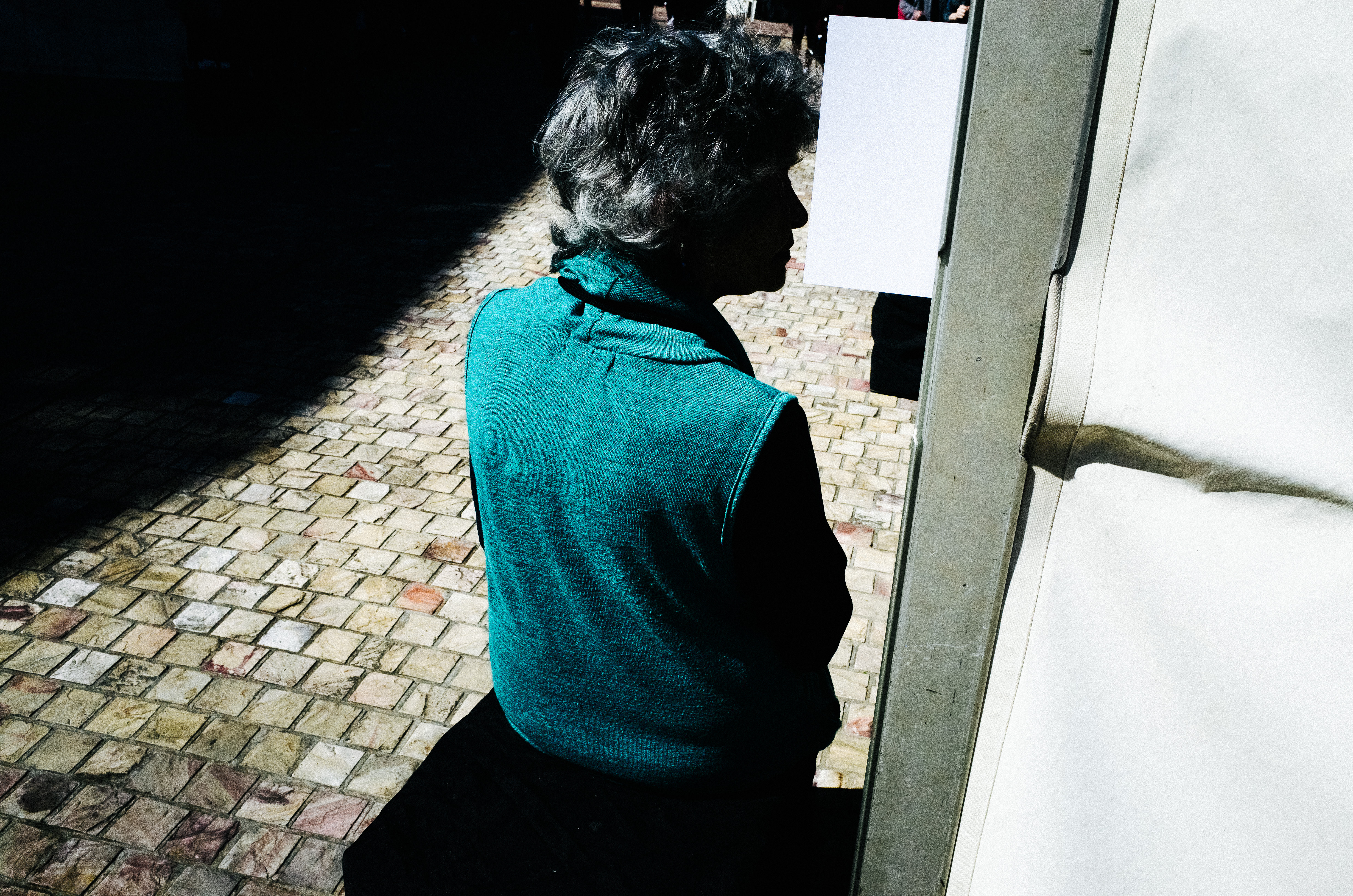
Dear friend,
One of the most challenging things in street photography is mastering your own psychology; to conquer your personal fears in photographing strangers (either with or without permission), to overcome the feeling of moralistic/ethical guilt of photographing strangers, and how to not hesitate before hitting the shutter!
First things first, realize that shooting street photography is actually really scary and intimidating. If you get any degree of social anxiety or fear when shooting street photography don’t worry, you’re a normal human being.
Now the exciting thing is this: You can train yourself to conquer any feelings of anxiety or fear in shooting street photography.
In street photography, first of all, identify your personal fears, ethics, and feelings on photographing strangers. Some things to consider:
Why do you get nervous photographing strangers? Is it because you’re worried that the person is going to yell at you or physically assault you? Or have you been socialized into believing that it is ethically wrong/evil to photograph a stranger without their permission?
It is my belief that we have been socialized on our attitudes towards photography. For example in some cultures, it’s not considered a big deal to photograph strangers (India, Vietnam). However in the West (America, Europe) so many people are paranoid about being photographed. Why? Culturally we have been socialized into believing that we have a “right to our own image”, and if someone takes your photograph without your permission, that you’re somehow committing a moral wrong/evil.
But in reality, when you’re making a photo, you’re not hurting anyone. Consider the act of making a photo:
You pick up a metal box, push a button, and the camera sensor encodes the photons of light in a scene into binary code (1s and 0s), which gets interpreted into a digital image.
When you take a photo of someone (assuming you’re not using a flash), you’re not physically affecting them.
Also consider, if you take a photograph of a stranger without their permission (and the stranger notices you taking their photo), at worst you’re only minorly annoying them.
As a street photographer, you’re doing a GOOD thing for society. As a street photographer, you’re documenting human history, you’re capturing the widest gamut of human emotions and experiences (both pain and joy), and you’re making art! Yes, street photographs are art.
It is also of my opinion that whenever you take a photo of a certain person or a scene, you’re actually blessing them. You’re signaling:
You are beautiful in my eyes. That is why I wanted to photograph you.
Now, we all have our own internal definition of beauty. For example I find old people with wrinkles beautiful, not everyone does. I find beauty in decay, life and death.
Stoic Street Photography
One of the practical tips I have is to take a Stoic approach to your street photography: Vividly imagine the worst-case scenario in your street photography, and then work backwards.
For example, what’s the worst that can happen in your street photography?
Will someone call the police on you?
If so, that’s okay, because it is your legal right to make photos of anyone in a public space. Perhaps you can just wait for the cops to show up (I’ve done this) so you no longer become afraid of the threat of having the cops called on you.
Will someone get angry and yell at you?
If so, will that be that much of a big deal? Someone might curse you out, but will that be that emotionally scarring to you?
Will someone physically assault you?
Even if they did; what would they do? Punch you, stab you, shoot you, or something else?
The worst anyone has ever got with me in terms of physical assaults is having someone shove me or having someone kick my butt (literally). Honestly nobody in their sane mind would punch you in the face for just taking a photo of them. Most people start making verbal threats before ever throwing a real punch. And even if someone did punch you in the face, trust me, it doesn’t hurt that much. I used to box a lot in high school (got knocked unconscious a few times), and the pain isn’t so bad.
So perhaps it could benefit us as street photographers to learn how to take a punch.
Be prepared how to respond
Another practical tip is be prepared to respond to people who get offended to your street photography.
Honestly my suggestion is to just be honest why you’re making a photo of them. If they get really really offended, take a look at the photo you took and ask yourself, “Is the photo worth it?” If it is a great photo, you can just apologize and say, “Sorry to have offended you, but I don’t delete photos” and walk away. If someone grabs you, technically they have committed assault on you, and you can actually call the police on them.
If the photo isn’t any good just delete it and prove that you deleted the photo. Then the person cannot do anything else.
But above all my suggestion is this:
Question your motives in street photography, and if you consider them positive motivations, then realize it is your DUTY to shoot street photography!
You are a heroic street photographer that might get assaulted (verbally or physically), but consider how much easier we have it compared to soldiers or people on the front lines of war.
BE BOLD and never forget to smile!
ERIC

